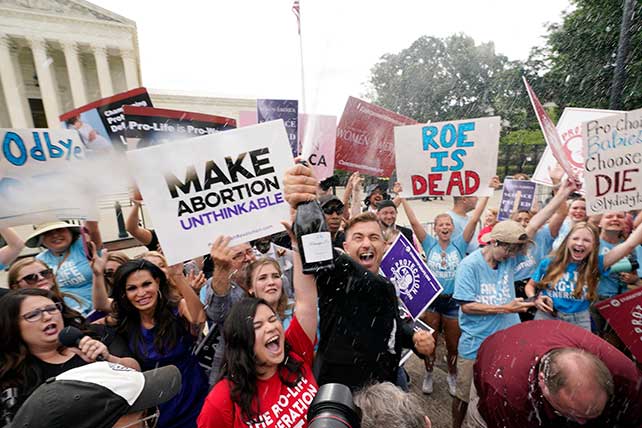MICHIGAN
Political control: Both chambers of Michigan’s legislature are controlled by Republicans who want to ban or restrict abortion access, but the state’s Democratic governor supports access.
Background: A dormant 1931 law bans nearly all abortions in Michigan but it hasn’t been enforced since Roe v. Wade. The law made it a felony to use an instrument or administer any substance with the intent to abort a fetus unless necessary to preserve the woman’s life. It has no exceptions in cases of rape and incest. Anticipating that Roe could be overturned, Planned Parenthood of Michigan filed a lawsuit challenging Michigan’s ban. A state judge suspended the law in May, saying it violates the state’s constitution. Gov. Gretchen Whitmer and Attorney General Dana Nessel, both Democrats, hailed the decision.
Effect of Supreme Court ruling: The injunction granted in the Planned Parenthood case ensures that abortion does not immediately become illegal. Planned Parenthood of Michigan and other supporters hope the injunction indicates abortion rights in the state will be preserved. But in a statement to The Associated Press, Nessel’s office said “given the ongoing lawsuits, we cannot speculate what the state of abortion rights will be in Michigan” after Roe.
What’s next: Whitmer also filed suit asking the state’s Supreme Court to declare the 91-year-old law unconstitutional. It has not acted yet. Michigan abortion rights supporters hope to put the issue on ballots this fall. Their proposed constitutional amendment would affirm the right to make pregnancy-related decisions without interference, including about abortion and other reproductive services such as birth control. The Reproductive Freedom for All committee needs to collect about 425,000 valid voter signatures by July 11 to make the November ballot. The measure would become law if voters approved it. The issue also is expected to shape statewide elections — Whitmer and Nessel are both up for reelection in the fall — and legislative races.

